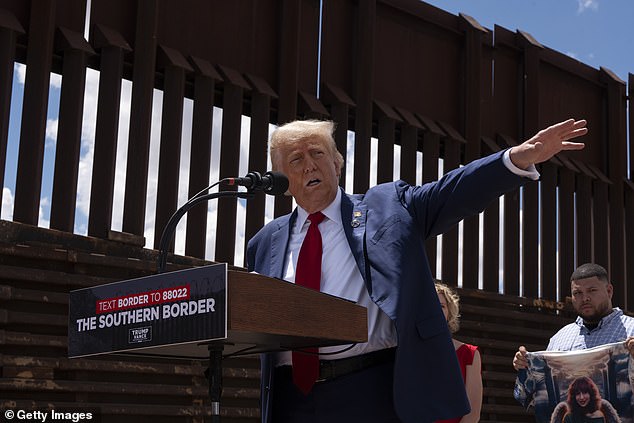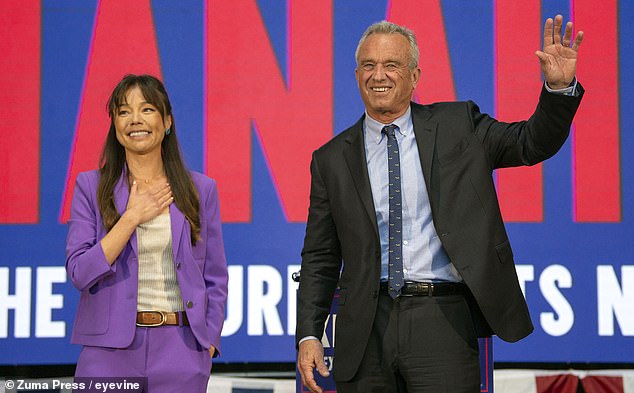Robert F. Kennedy Jr. has officially filed paperwork withdrawing his name from the presidential race in Arizona, the day before he is set to address his “path forward.”
In the clearest indication yet that Kennedy will end his long-shot bid for the White House, a spokesman for Arizona’s secretary of state said Thursday that the independent candidate has dropped out of the state’s presidential race.
The move came despite Kennedy garnering nearly three times the number of signatures needed to appear on the Arizona ballot; however, some have questioned its legitimacy as they were reportedly collected by a super PAC.
Kennedy’s campaign has not said he will withdraw, but has announced a speech Friday in Arizona where he will discuss “the current historic moment and his path forward.”
Amid rumors that Kennedy will endorse Donald Trump, the former president’s campaign said he will have a “special guest” at a rally on Friday, also taking place in Arizona.
Robert F. Kennedy Jr. has officially filed paperwork withdrawing his name from the presidential race in Arizona amid rumors that he will drop out of the election on Friday.
Kennedy’s expected withdrawal from the presidential race comes after a tumultuous period for his candidacy, which included a bizarre admission that he was responsible for a bear carcass found in Central Park in 2014.
In recent weeks, Kennedy has been reported to have been in talks with the Trump campaign, however, sources told the The New York Times No decision has been made on the endorsement this week.
Kennedy’s decision to drop out in Arizona was not forced by a lack of support, however, as by Friday, officials said, he had submitted 118,000 signatures to qualify for the Arizona ballot.
Aaron Thacker, a spokesman for the Arizona secretary of state’s office, said election workers “had spent the entire weekend working to verify (Kennedy’s) signatures.”
“He only needed about 42,000 and he got over 118,000,” Thacker added.

Kennedy has reportedly been in talks with Donald Trump’s campaign about an endorsement.
The Times reported that if Kennedy’s campaign had gone ahead with verifying his place on the ballot, these signatures could have proven problematic and exposed him to legal trouble.
Sources told the outlet that the signatures were collected by a super PAC supporting RFK Jr.’s candidacy, and not by his own campaign.
This may have violated federal campaign laws that limit coordination between campaigns and outside organizations, which could have triggered a wave of legal challenges.
At a campaign stop in Arizona near the southern border on Thursday, Donald Trump said he was open to receiving Kennedy’s endorsement, calling the prospect a “great honor.”

